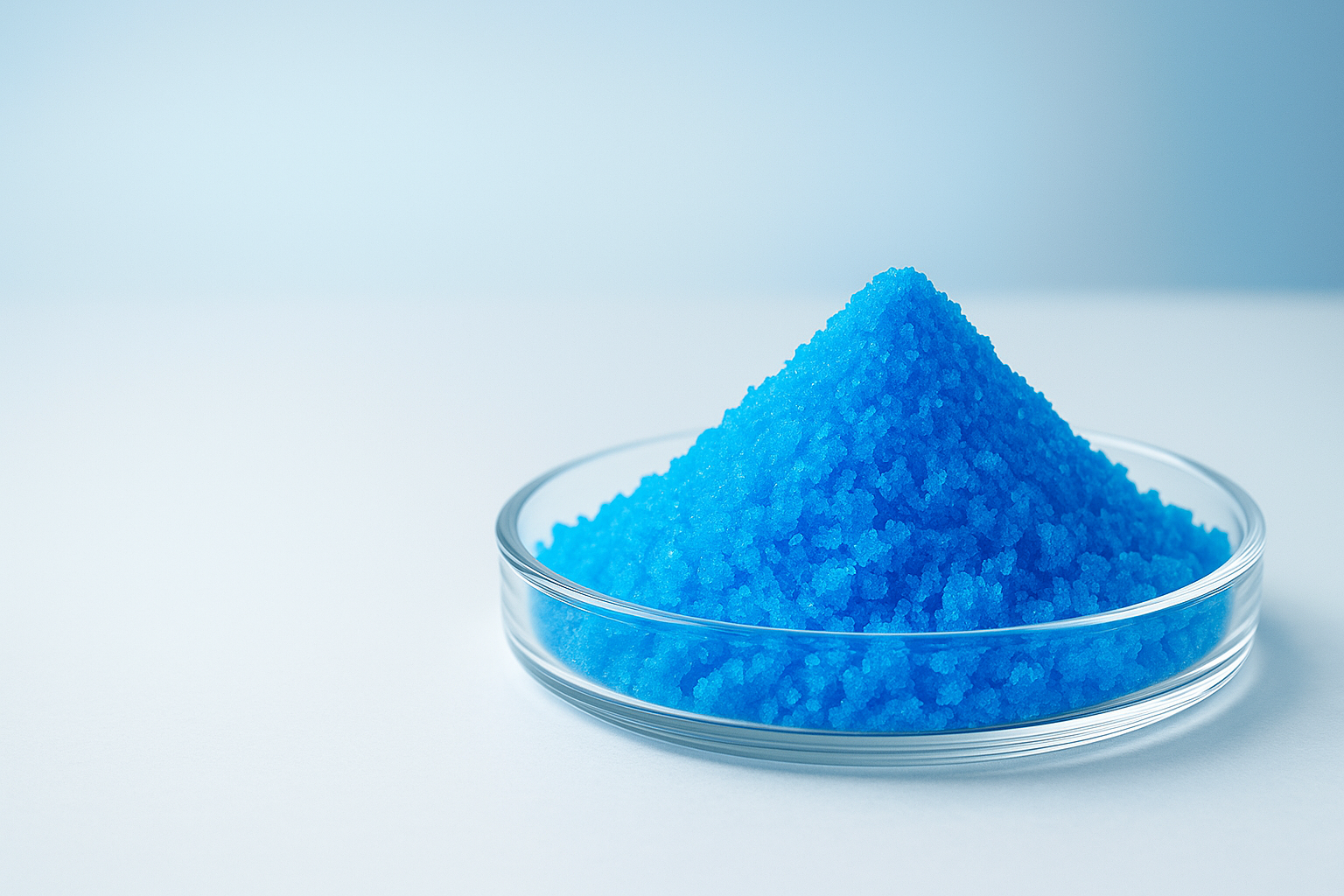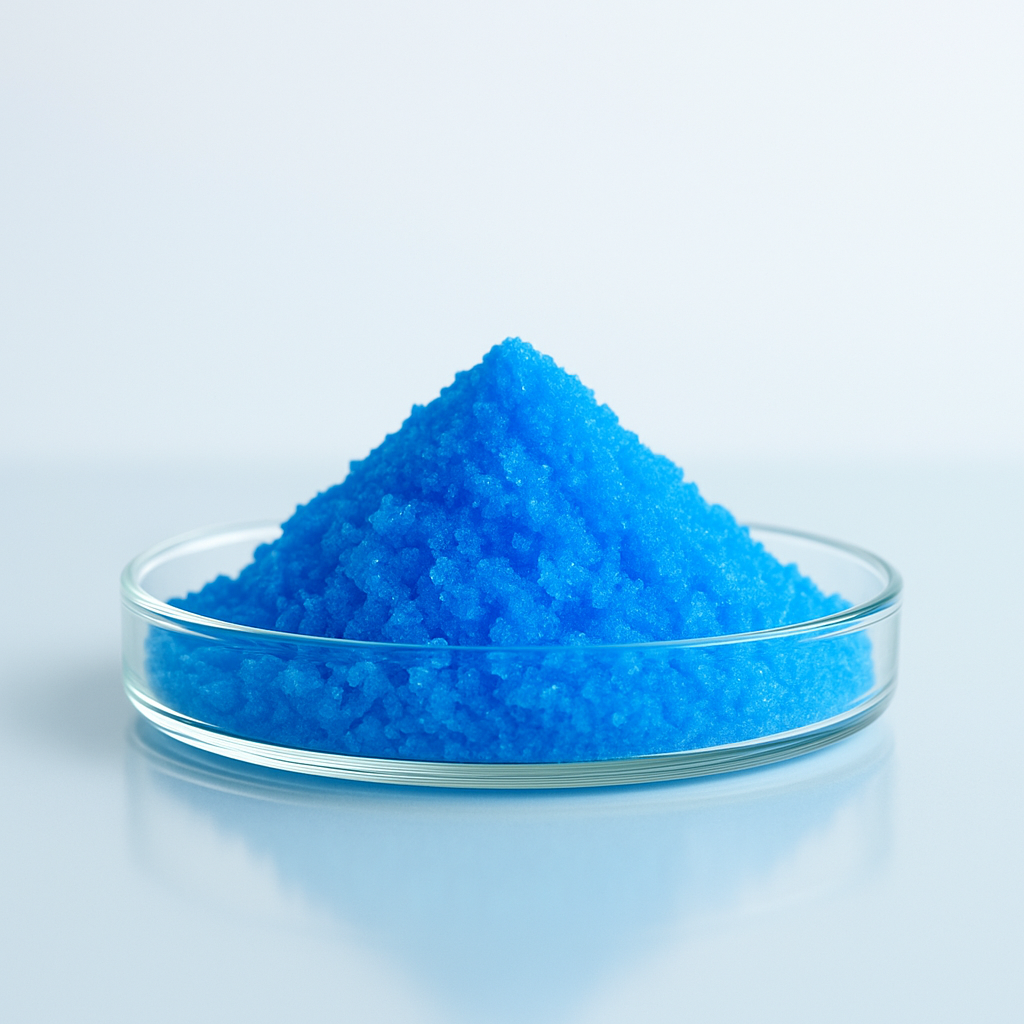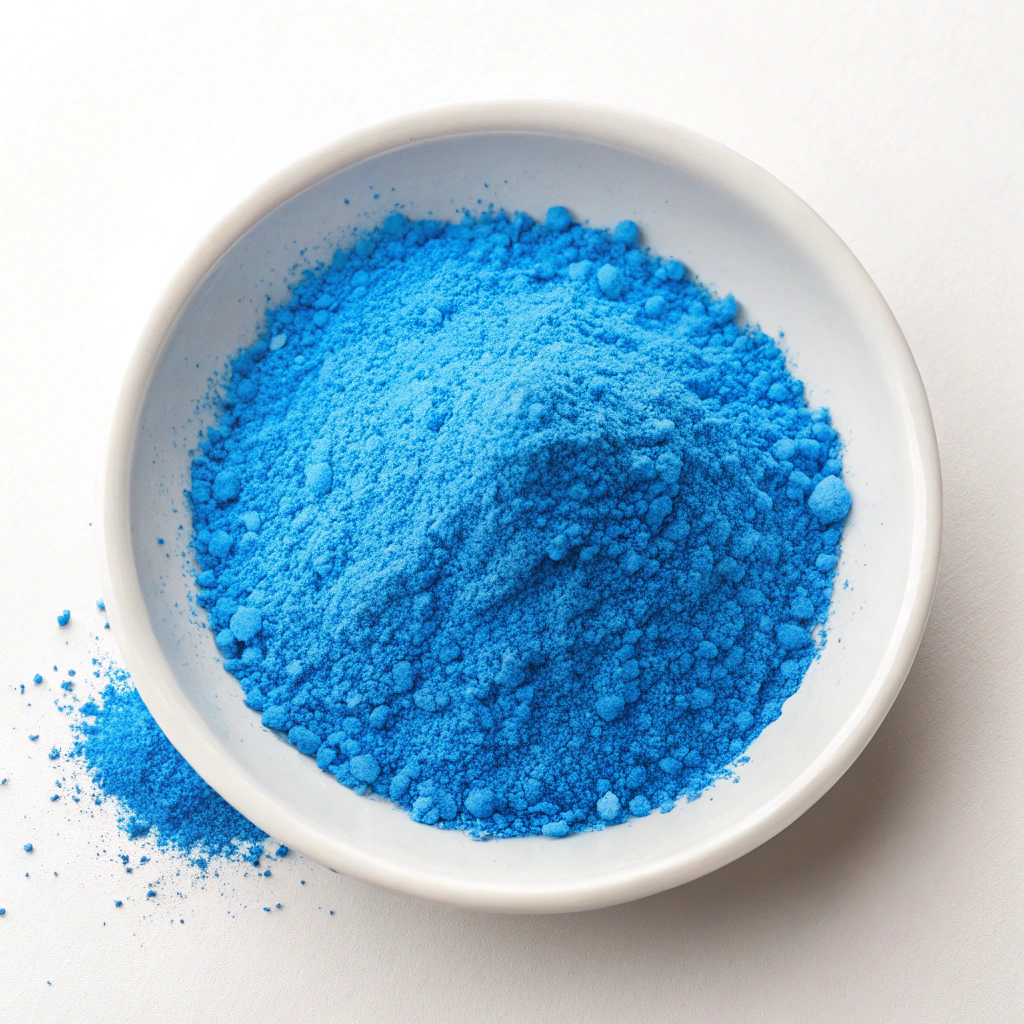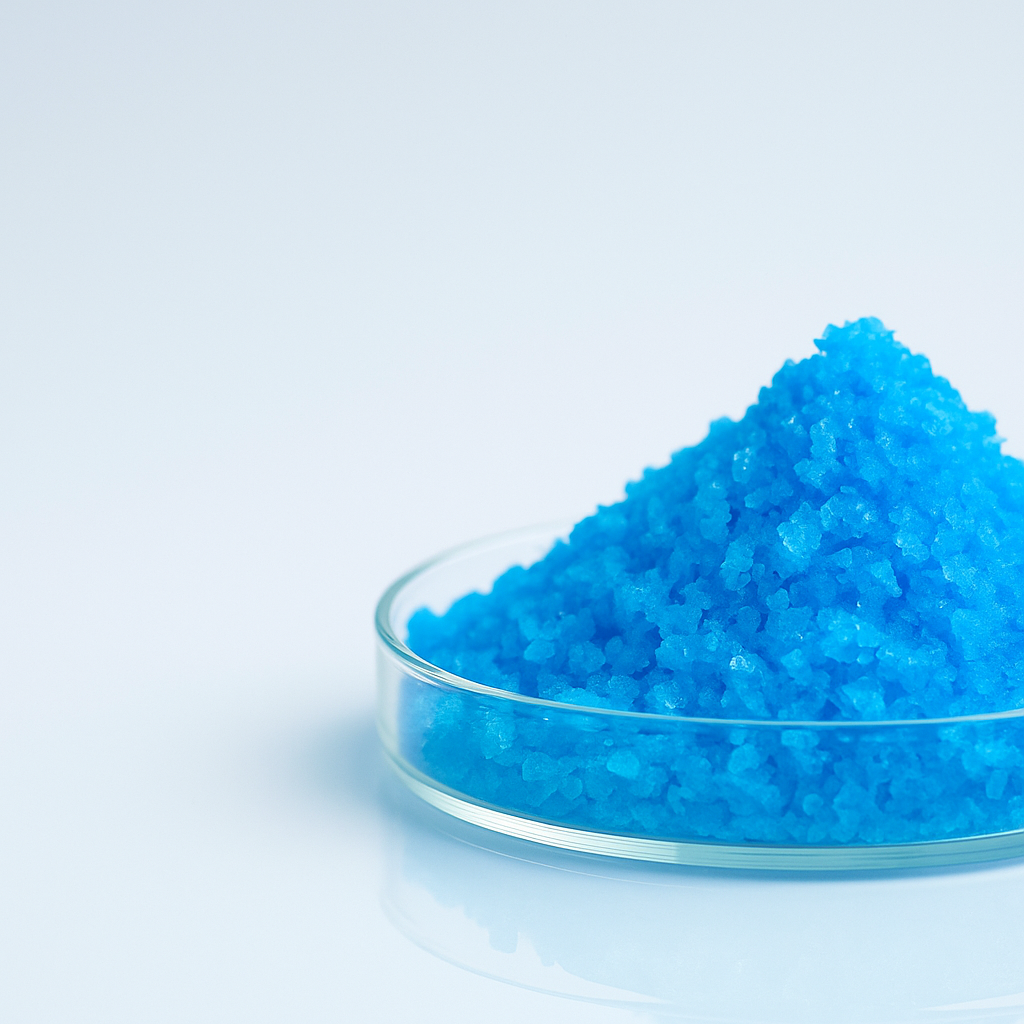
How Copper Sulphate is Revolutionizing Agricultural Practices
From disease prevention to soil enhancement, copper sulphate is transforming modern farming
Introduction
Copper sulphate (CuSO₄·5H₂O), also known as blue vitriol or blue stone, has emerged as one of the most important chemical compounds in modern agriculture. This crystalline blue substance, which has been used in farming for over a century, continues to play a crucial role in enhancing crop productivity, preventing diseases, and maintaining soil health. As agricultural practices evolve to meet growing global food demands while addressing environmental concerns, copper sulphate remains an indispensable tool for farmers worldwide.
At Sulman Traders, we have witnessed firsthand the transformative impact of high-quality copper sulphate on agricultural outcomes. This comprehensive guide explores the multifaceted benefits of copper sulphate in agriculture, from its traditional applications to cutting-edge uses that are shaping the future of sustainable farming practices.
Understanding Copper Sulphate in Agriculture
Copper sulphate pentahydrate is a water-soluble salt that provides readily available copper ions to plants and soil systems. Copper is an essential micronutrient required for numerous physiological processes in plants, including photosynthesis, enzyme activation, and cell wall formation. Despite being needed in small quantities, copper deficiency can severely impact plant growth and yield.
The distinctive blue color of copper sulphate crystals makes it easily recognizable, while its high solubility in water ensures rapid availability to plants when applied as a foliar spray or soil amendment. The pentahydrate form (containing five water molecules per copper sulphate molecule) is the most commonly used agricultural grade due to its stability and consistent copper content.

High-quality copper sulphate crystals used in agriculture
Primary Agricultural Applications
1. Fungicide and Disease Control
One of the most significant applications of copper sulphate in agriculture is its use as a broad-spectrum fungicide. Copper ions are toxic to many fungi, bacteria, and algae, making copper sulphate an effective tool for disease prevention and control:
- Bordeaux mixture: When combined with lime, copper sulphate forms Bordeaux mixture, one of the oldest and most effective fungicides still in use today.
- Blight control: Highly effective against late blight in potatoes and tomatoes, which can devastate entire crops if left untreated.
- Fruit tree diseases: Controls apple scab, peach leaf curl, and fire blight in orchards.
- Downy mildew: Prevents and controls downy mildew in grapes, vegetables, and ornamental plants.
- Bacterial infections: Effective against certain bacterial plant diseases when used preventively.
2. Micronutrient Fertilizer
Copper is an essential micronutrient for plant growth, playing critical roles in:
- Photosynthesis: Copper is a component of plastocyanin, a protein involved in electron transport during photosynthesis.
- Enzyme function: Many enzymes require copper as a cofactor, including those involved in lignin synthesis and carbohydrate metabolism.
- Protein synthesis: Copper is essential for the formation of certain proteins and the maintenance of cell membrane integrity.
- Reproductive development: Copper deficiency can lead to poor pollen formation and reduced seed set.
- Root development: Adequate copper levels promote healthy root growth and nutrient uptake.

Copper sulphate enhances plant health and development
Environmental Considerations and Sustainable Use
While copper sulphate is essential for agricultural productivity, responsible use is crucial for environmental sustainability:
- Soil copper accumulation: Excessive applications can lead to copper buildup, potentially affecting soil microbial activity.
- Water quality protection: Proper application timing and rates prevent copper runoff into water bodies.
- Integrated pest management: Using copper sulphate as part of a broader IPM strategy reduces reliance on single treatments.
- Resistance management: Rotating copper-based treatments with other disease control methods prevents resistance development.

Sustainable application practices protect the environment
Frequently Asked Questions
How much copper sulphate should I apply to my crops?
Application rates vary depending on crop type, soil conditions, and copper deficiency levels. For foliar applications, typically 0.2-0.5% solutions are used. For soil applications, rates range from 5-25 kg per hectare. Always conduct soil tests first and consult with agricultural experts.